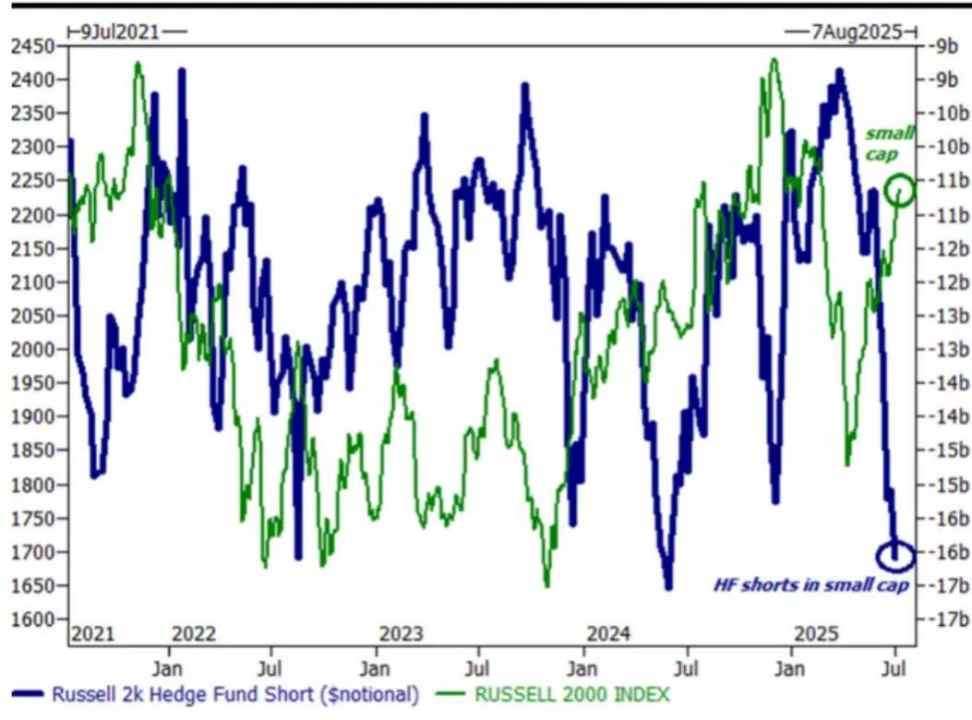


author: Zeng Hui, Zhitong Finance In
the microstructure of the US stock market, small-cap stocks
Zhitong Finance App learned that according to Goldman Sachs Group's trading department data, short positions (short-interest) against the Russell 2000 Index in July reached $16 billion, one of the highest levels since 2021. While short positions in small-cap stocks are rising, the shorting market is also quietly unfolding. The Russell 2000 Index has rebounded nearly 30% since its April low.

According to classical market theory, closing short positions will generate a large amount of buying demand. Once this demand is released centrally, it will drive stock prices to rise sharply in the short term. Historical experience also confirms this. When short positions reach similar high levels, they are often accompanied by varying degrees of emptying the market. For example, during the economic recovery phase in 2020, some small-cap stocks doubled in the short term due to concentrated recovery from bears
. The small circulation characteristics ofUS small-cap stocks have further amplified the potential for stock price fluctuations. In the case of small amounts of capital entering and leaving, stock prices can fluctuate significantly. This high flexibility not only provides investors with a trading scenario to capture
short-term excess returns, but also constructs a transaction value logic where “high risk is associated with potentially high return”.Take the digital fintech group Mercurity Fintech (MFH.US) as an example. As a small-cap stock with a total share capital of 63.6866 million shares, recent stock price changes are particularly typical. Affected by market sentiment on July 21, the company's stock price fell by 57.36%, with a transaction amount of US$17.14 million; on July 24, the stock price rebounded rapidly, surging 53.12%, and the transaction amount was US$40.64 million, a record high of 8 months
.MFH's stock price changes are not an isolated financial game. Judging from the short data and transaction structure of the Fintel platform, there is still the potential to further trigger a downward trend in the future. According to the data, MFH's current short position volume is 1.815,700 shares, accounting for 4.43% of tradable shares; at the same time, OTC short sales volume is 2091,000 shares, accounting for 53.64%. MFH's short interest ratio (short interest ratio) is 3.11 days, which means it takes about 3.11 days to close a short
position with current trading volume.




